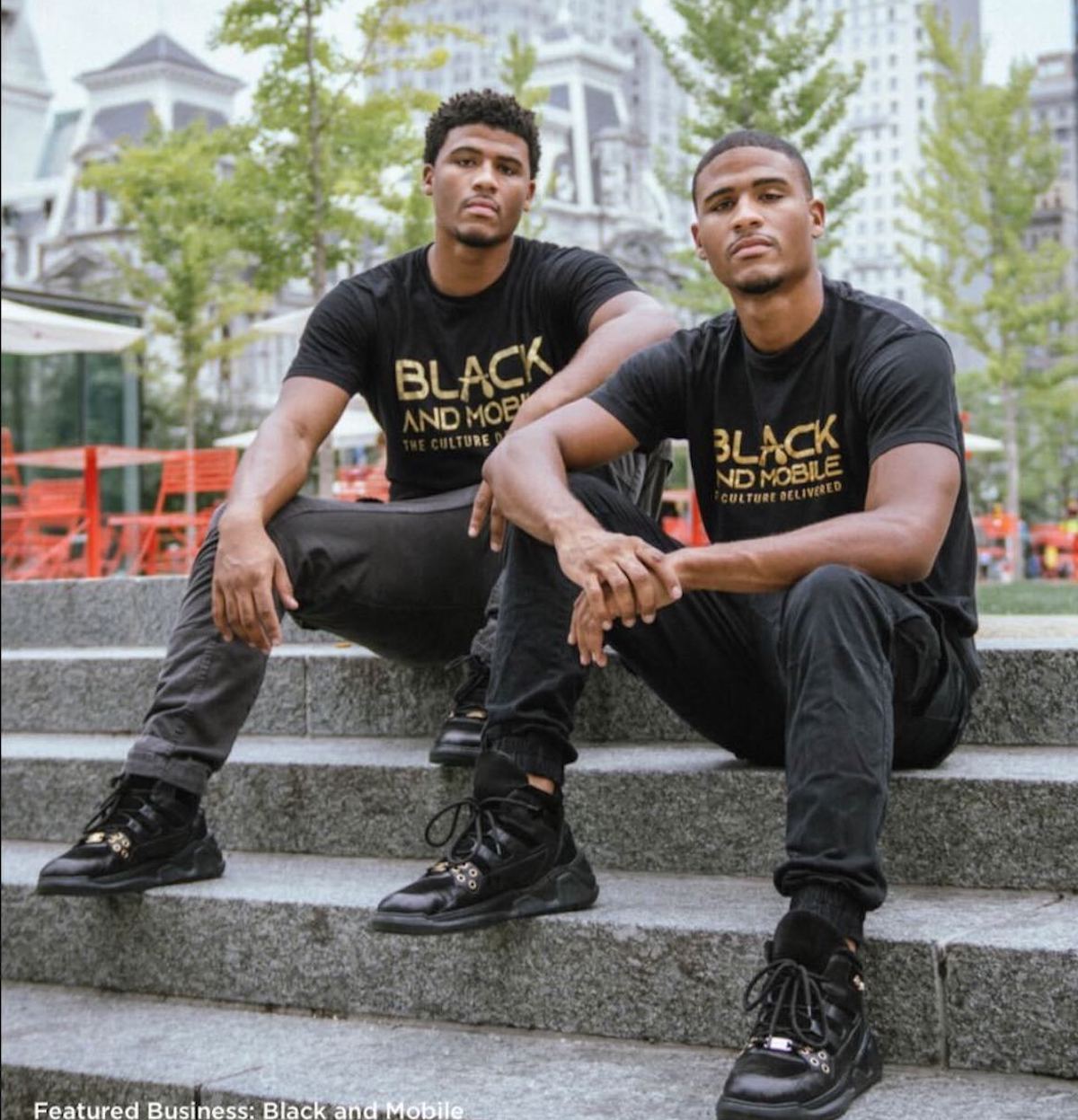It’s been a journey for this homegrown, three-year-old food delivery startup.
After a two-month hiatus, Black and Mobile relaunched in Philadelphia, Baltimore and Atlanta last month, and launched for the first time in Los Angelos and New York City.
The 2019-founded food delivery startup, which landed third on Technical.ly’s 2021 RealLIST Startups, connects its users with local, Black-owned restaurants. The company was founded by brothers David Cabello and Aaron Cabello in February 2019 after David Cabello’s time working as a driver for food service apps like Postmates and Caviar inspired the brothers to make sure money was circulating in the Black community.
It first launched in Philadelphia, then expanded to Baltimore and Atlanta in late 2020. The same year, it had been working with developers JumpButton Studio on a custom app, but the companies parted ways, David Cabello told Technical.ly. (JumpButton cofounder Nicodemus Madehdou confirmed this in an email, and said the company has since refocused its business exclusively on the gaming and animation industry.)
After working with JumpButton, David Cabello said Black and Mobile shifted to another group of developers who set out to fix a handful of bugs the company’s app was experiencing. After months of work, the bugs weren’t fixed, and they’d lost an estimated hundreds of thousands in sales. Cabello said the team was asking for partial equity in Black and Mobile to continue working, which he turned down.
“It’s scary when you’re not a coder and you’re running your business,” he said. “People want us to be the alternative [to apps like Uber Eats and DoorDash], but we have to work well.”
The team took a break to regroup from December through February, and figured out a third-party online ordering system that works for them while they raise funds to build their own custom app over the next several months. The time battling technology bugs lost the company money, but also the momentum it had grown over its first three years of operation.
We're rebuilding everything we built, and getting trust back with the community.
“Dealing with these issues made it hard to stay in business. We lost trust from our customers, restaurant partnerships, our drivers,” Cabello said. “The damages are more than money. We’re rebuilding everything we built, and getting trust back with the community.”
There were some advantages to starting in smaller markets like Philly, Atlanta and Baltimore, Cabello said, of the company’s earlier launches. These smaller markets and tighter-knit communities meant word of mouth marketing worked well, and it was easier to figure out the logistics and POS systems needed. Black and Mobile is also been working with Pepsi on its Dig In initiative, which is investing $50 million in Black-owned restaurants over the next five years. Through the program, Black-owned companies in the space can get connected to capital, business resources and SEO and POS systems.
Now, after two months off, the startup is ready to expand to the country’s largest cities. There are 10 to 15 restaurants signed up in New York and Los Angelos as of last week, the cofounder said. New York spots include Cuzin Duzin, Sofia Grace and Cookies, The Nourish Spot, Silver Chicken and Seafood and Sweet Brooklyn Bar.
“New York is one of those food delivery cities, and you have neighborhoods in Brooklyn, Harlem and Queens that have so many Black-owned restaurants, businesses and culture, it’s the next step,” Cabello said. “And LA is a different kind of city, but they don’t have any alternative options.”
Cabello said the company will pursue equity crowdfunding, a method of raising capital online which was made possible by the federal JOBS Act in 2016, and updated in 2020 to allow companies to raise $5 million a year from non-accredited investors, up from $1.07 million. Black and Mobile has an initial goal of $250,000 which would beef up its now-four-person team.
The cofounder said he’s much more interested in equity crowdfunding because of the community- and mission-driven nature of his business. If drivers, restaurant owners or friends want to invest, they can own a piece of the business they’re working hard to help succeed. It also gives him more sense of control, he said.
“It’s hard to find trustworthy investors, it never really goes as planned, so we’re doing equity crowdfunding,” he said. “I can raise more with giving less of us. I can set the rules.”
Before you go...
Please consider supporting Technical.ly to keep our independent journalism strong. Unlike most business-focused media outlets, we don’t have a paywall. Instead, we count on your personal and organizational support.
Join our growing Slack community
Join 5,000 tech professionals and entrepreneurs in our community Slack today!

The person charged in the UnitedHealthcare CEO shooting had a ton of tech connections

Delaware students take a field trip to China using their tablets and ChatGPT

From rejection to innovation: How I built a tool to beat AI hiring algorithms at their own game


